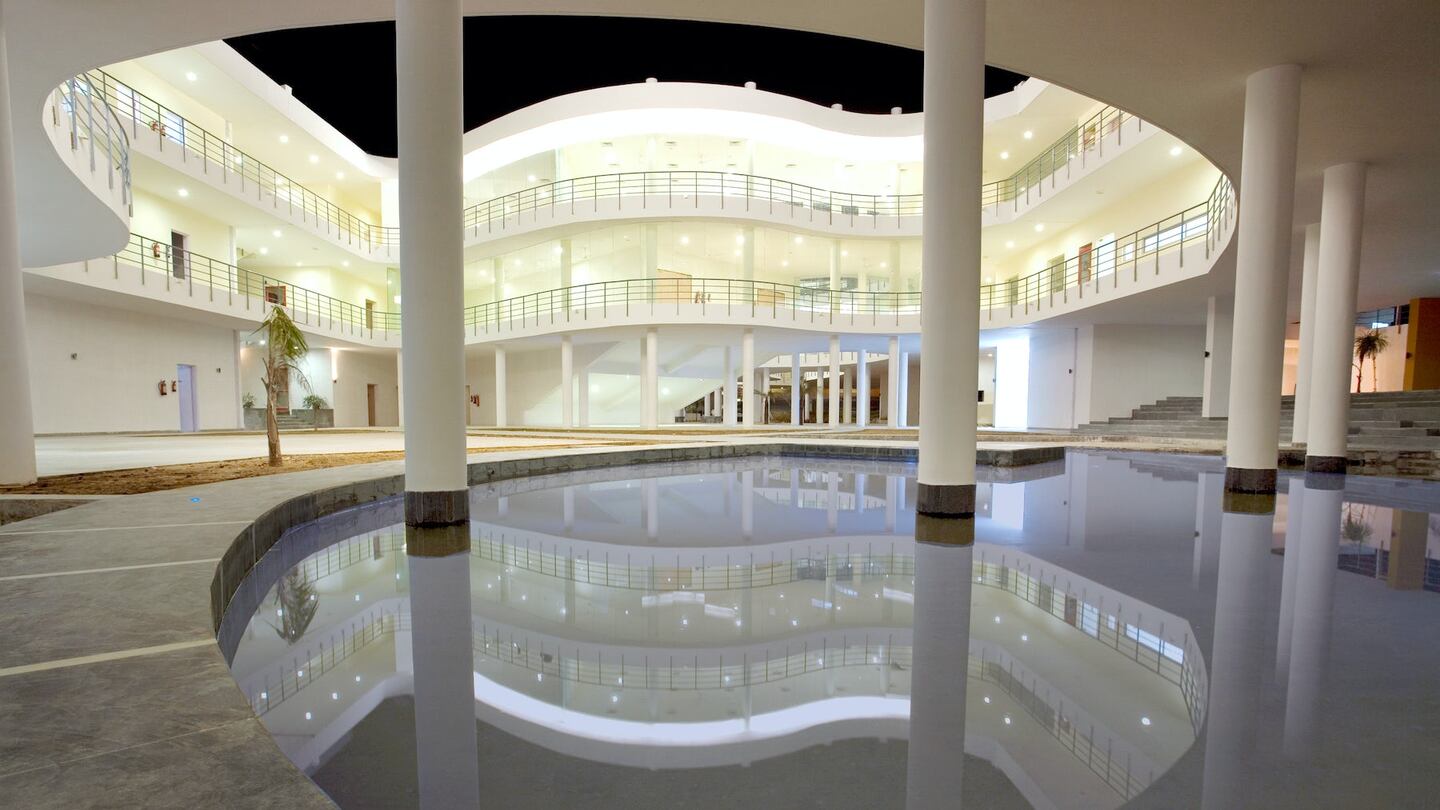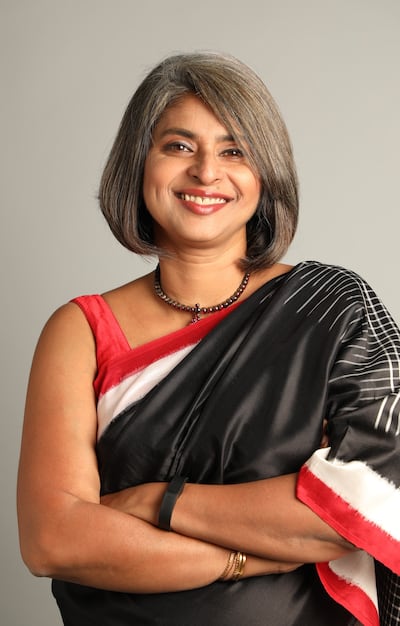
The Business of Fashion
Agenda-setting intelligence, analysis and advice for the global fashion community.

Agenda-setting intelligence, analysis and advice for the global fashion community.

DELHI, India — Embedded into India's fast-growing apparel market sits fashion school Pearl Academy, with over 5,000 students across 6 campuses in Delhi West, Delhi South, Jaipur, Mumbai, Bengaluru and Kolkata.
Across each campus, students are encouraged to turn to local resources and work with Indian textiles and craftspeople, weaving the heritage of indigenous skillsets into their practical training. While celebrating the local artisanship, championing the next generation of Made in India designers, the school also offers opportunities for its students to extend their learning internationally.
Pearl Academy's ties to the Fashion Design Council of India provides student access to mentorship and internship opportunities with over 200 fashion professionals. Students have accompanied designers like Manish Arora and Rahul Mishra to Paris Fashion Week and participated in events like the Graduate Fashion Week in London, Vancouver Fashion Week and the World Design Competition in China.
Exposure to the global fashion industry is also secured through the academy's ties with universities like Fashion Institute of Technology in New York, Nottingham Trent University in the UK, and Torrens University in Australia, allowing students to work on cross-cultural projects and participate in exchange programmes, be it a semester abroad or a summer programmes within these institutions.

Pearl Academy President Nandita Abraham | Source: Courtesy
Now, BoF sits down with the school’s president Nandita Abraham to hear more about Pearl Academy’s emphasis on marrying local artisanal craft with international study opportunities to mould the next generation of international Indian designers.
How would you describe the DNA of your school?
Some of the key things that we stand for is innovation, agility and creativity, which has really helped us build internationally and adapt to new ways of learning. For example, while we are in lockdown due to the coronavirus, we have been able to put in place a complete academic timetable through online learning and all classes are still going on, including international labs with universities in the UK and New Zealand.
Since we started in 1993, Pearl has always been international. We strongly believe areas like fashion and design have a worldly context. You can have Indian textiles in your craft, but you need to understand it in its context. Our promise to our students is that everyone will get an international opportunity.
What kind of international opportunities do you offer your students?
We have month-long and semester exchanges with colleges around the world, international faculty on our campuses and a module called International Lab, where students from Pearl Academy and from another college in the world work together to create something. It's not just about output, but also about understanding the other person's culture, language, what timing means somewhere else — respecting each other.
For example, we did a project with FIT, with its students from New York and our students from India working together to create a new version of the kurta, which is a typically South Asian tunic. The students created a range that was shown at India Fashion Week here in Delhi and now it has been sent to New York and will be shown there.
Our promise to our students is that everyone will get an international opportunity.
Most of our international students, here on exchange, choose to go to our Jaipur Campus because that's where there's a lot of heritage, culture, embroidery, jewellery and different craft techniques. We bring in a lot of craftspeople onto the campus and they stay for a week at a time, so students really get the opportunity to work on these.
How do you embed the value of local craftsmanship within your education?
All of our courses have craft deeply embedded into them. In the core curriculum, for example, all students do a module called craft documentation, where they go and stay in villages with craftspeople for four weeks, which helps them contextualise why craftspeople use certain colours or techniques — and we're losing all of this.
Crafts and textiles are important in the complex ecosystem that we have in India, so we want students to understand current beliefs but also look at future values. We engage with industry but also with NGOs and craftspeople, as we want our students to understand how to use technology responsibly. We aim to develop an aptitude within our students to analyse what's happening in the world, to understand and predict what can be desirable and responsible for the future market in India.
I think it is our responsibility to represent the key issues in the industry and take them forward. It’s also about those manufacturing for all the big brands in the western hemisphere and what it means for them. These areas require different skills — not just the making and aesthetic skills, but the ability to understand data, consumers, changes in society, and then to use fashion as a voice to communicate that.
What kind of student thrives at Pearl Academy?
At Pearl Academy, we take the first year to help students become more independent learners and we teach them the importance of asking questions, of knowing what's happening in the outside world, so politics, society and ethics are important. It is not just the aesthetics of today, but the aesthetics of what's been around for the last thousand years and what will come in the future.
All of our courses have craft deeply embedded into them.
We also encourage students to understand themselves, because what kind of a designer and professional you want to be is found within you. Students who are open and ambitious do well, because we will teach you all of this — you just have to want to learn.
How do you help students develop into industry professionals?
We have a very strong tie-up with the Fashion Design Council of India, which provides our students access to over 200 designers. The students’ first introduction to the Fashion Design Council is a class called the Designer Club, where we have tables of one designer with 10 students for an hour. It's like speed dating. They really get to talk up-close and personal.
Students have access to industry professionals throughout their studies and they go for trips, visit factories and textile mills all over India. We also have a module in the final year called Professional Practice, where industry professionals come and talk to the students on topics like how to handle office politics or what ethical practice looks like in the workplace. We have HR round tables with different companies talking to students, for them to learn and understand what they do.
We also engage closely with the Fashion Design Council of India for our graduation show during India Fashion Week, which is really special and gives students an opportunity to have designers come in and see their shows.
This is a sponsored feature paid for by Pearl Academy as part of a BoF Education partnership. To learn more about Pearl Academy, please click here.
From analysis of the global fashion and beauty industries to career and personal advice, BoF’s founder and CEO, Imran Amed, will be answering your questions on Sunday, February 18, 2024 during London Fashion Week.
The State of Fashion 2024 breaks down the 10 themes that will define the industry in the year ahead.
Imran Amed reviews the most important fashion stories of the year and shares his predictions on what this means for the industry in 2024.
After three days of inspiring talks, guests closed out BoF’s gathering for big thinkers with a black tie gala followed by an intimate performance from Rita Ora — guest starring Billy Porter.